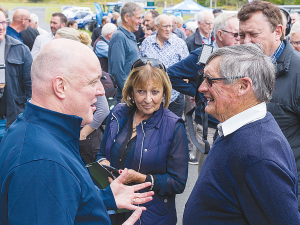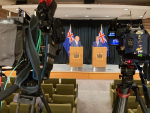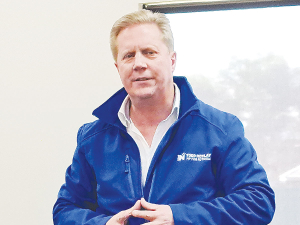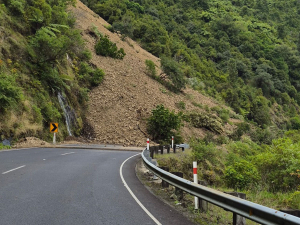Prime Minister Christopher Luxon says excessive regulation imposed by the previous government has resulted in an ‘obstruction economy’.
Speaking to about 400 farmers at Mystery Creek last week, Luxon said the country needs smart regulations but not red tape.
“Red tape has no benefit, and we need to clear that out of our system, big time,” said Luxon.
“It’s slowing our primary sector. My government has set out to liberate the sector.”
The meeting was the first of three planned as part of Federated Farmers’ Restoring Farmer Confidence Tour. A second meeting was held in Christchurch last Friday.
Luxon says farmers tell him that some of them spend 25-30% of their time doing costs and compliance administration.
“That is just sheer red tape without benefits.”
Read More
Luxon says the previous Labour government had 23 different regulations put into place for the farming sector.
“That’s like 10 tennis balls being served at [once] and at the same time you don’t hit any of them,” he says.
Luxon says his government is dismantling unworkable regulations put in place by Labour. He told farmers that Wellington’s war against farmers has ended.
“We trust farmers. We ask you directly how things should work, rather than being told by our officials in Wellington. We know that change can drive certainty, but we want to give you certainty by cutting costs and red tape.”
Federated Farmers president Wayne Langford says farmers want to know “what will bring confidence back to farming”. He says it’s been a tough year for most farmers.
“We can’t hide from the fact that a large number of sheep, dairy and beef farms have been bumping bills out month to month.”
He notes that the situation was exacerbated by the previous government putting a “fair few expectations” on farming.
“The new government has taken time to take these regulations off.”
Langford notes that farmer confidence was at an all-time low 18 months ago. He says a return of confidence would allow farmers to invest in their properties, grow their businesses and hand them over to the next generation.
He says next year is looking positive with signs of lamb prices lifting, interest rates dropping and farm input prices stabilising.
He says farmers won’t need to pay for their emissions from 2025, which was “a crazy idea anyway”.
“For the first time in a long time, farmers are being heard and being respected,” says Langford.



















